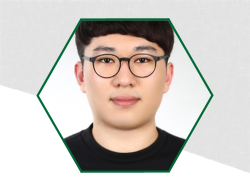Laser heat treatment is a process that changes the strength and hardness of the material. Unlike general heat treatment processes, laser heat treatment has the advantage of being able to apply heat locally and having a fast-cooling time. However, due to the high-intensity heat source, excessive heat can be applied to the material, resulting in surface melting, and softening. In this study, a deep learning model based on generative adversarial network was applied to predict the hardening and softening phenomena that occur during laser heat treatment of AH36 carbon steel. As input data, the temperature field of the cross-section, which is obtained by solving the 3-D heat conduction equation using COMSOL, was applied. The input data consist of two temperature distributions: one obtained when the surface temperature is at its maximum, and the other obtained after 0.5-second. The hardness and phase distributions of the cross-section used as ground truth were obtained from a 2 kW multi-mode fiber laser experiment. The model trained with only one-temperature field predicted the hardness distributions well, but the prediction of the softened region was inaccurate. On the other hand, in the case of the model trained with two-temperature fields, it showed high prediction accuracy for hardness and phase distributions in both the softened and hardened regions.
Keywords
- Deep Learning
- Generative Adversarial Network
- Hardening
- Laser Heat Treatment
- Softening

